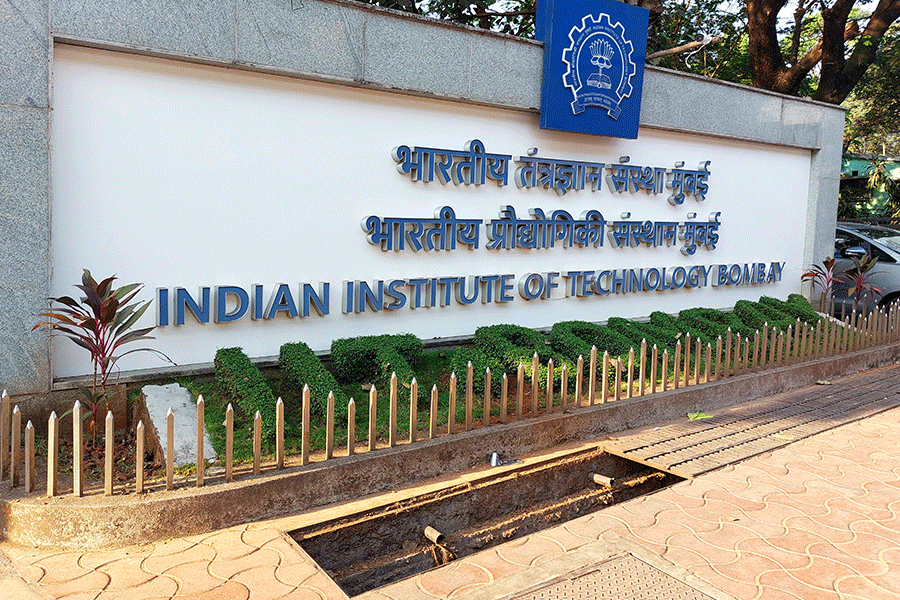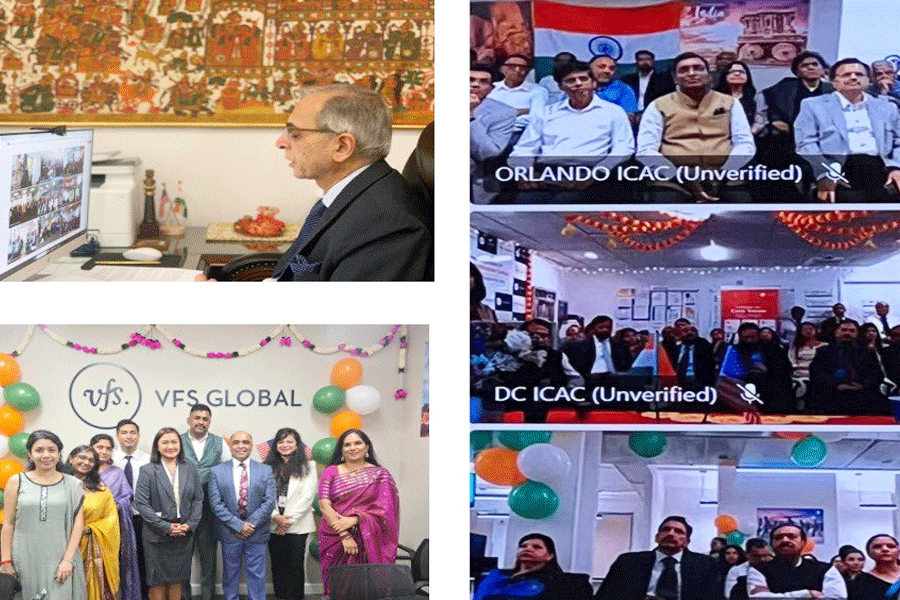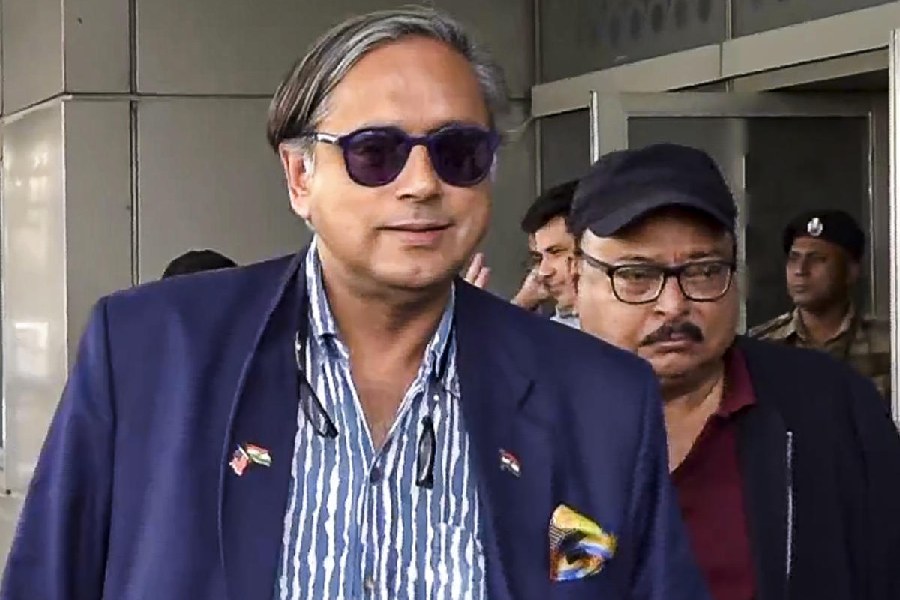 |
| Sikha Patra with mother Minati, who is proud of her daughter’s community work |
A day in the lives of Salim Shekh and Sikha Patra usually begins in front of a community water tap in northeast Calcutta where residents of 10 paras converge every morning before the scheduled supply hour.
As Monday dawns and the water war breaks out all over again, the two 14-year-olds won’t be standing in front of that tap — they will be headed for London as guest speakers at the Said Business School, University of Oxford.
Salim and Sikha are due to take the stage on Thursday at a session called “Young people — The new superheroes leading social innovation” to talk about life back home at Nehru Colony, near Ultadanga, and their crusade to improve living conditions for 9,000 refugees. The event is a part of the Skoll World Forum on Social Entrepreneurship, organised by the Skoll Foundation.
“They earned their passage to England. I had no hand in it,” says Amlan Ganguly of the NGO Prayasam, with which the teenagers work.
Sikha and Salim will go extempore in Bengali on their Oxford lecture debut. Mentor Ganguly will be translating their speeches into English for the audience.
The road to Oxford was paved brick by brick over three years of community work by Sikha and Salim as area health minders of Prayasam. The duo have continued their studies alongside — Sikha in Class X at Rani Satarupa Balika Vidyalay in Belgachhia and Salim in the same class at Saradaprasad Institution in Ultadanga.
That both are different from other teenagers of the neighbourhood leading listless lives was first highlighted in a documentary commissioned by Stanford University on Prayasam’s work with children.
“The film shows how Salim, Sikha and two other kids are taking ownership of their community with a focus on health. Someone from Skoll Foundation watched it on the edit table and wrote to us, inviting Salim to the forum that has youth empowerment as its theme,” recounts Ganguly.
 |
| Salim Shekh with mother Asma Bibi, who helps her son balance school with work. (Rashbehari Das) |
The founder director of Prayasam immediately pitched for the inclusion of a girl in the guest list. “Gender discrimination in these areas is a big concern for us,” he says.
A second invitation soon arrived for Sikha, who has already shown she doesn’t have stage fright by speaking at a programme hosted by the ministry of women and child development at Vigyan Bhavan on National Girl Child Day last year.
“As a peer educator in the campaign against child marriage, I was required to not only highlight problems but also suggest solutions,” she says of that event.
Salim points to a business card of industrialist and MP Naveen Jindal pinned to an improvised soft board in his one-room home as a memento from his 2010 visit to Delhi to address the Parliamentary Forum on Children on his work on hygiene and environmental cleanliness.
“After I spoke (at the Parliament library), Jindalji came up to me and gave me his card. He said I could call him any time,” he recalls.
Across the rail tracks, off Dakshindari Road near Ultadanga, a narrow lane leads to Nehru Colony. The lane is clean, the result of a door-to-door campaign by Salim’s group to stop dumping garbage there, but not everything is met with enthusiasm.
Activism, of course, has its pitfalls. More so in the kind of environment in which Salim and Sikha have grown up.
When an anonymous call to Childline last year prompted the police to halt an underage marriage at the colony, the family immediately suspected Sikha’s group had something to do it. But Sikha’s parents have stood by her.
“Except for that one time, there has never been a complaint. She must be doing good work,” says mother Minati.
Father Ramesh, a driver, has bought her a sweater, a pair of shoes and a dress for the UK trip.
Salim’s father Khude Mian makes and sells paper cartons. In his absence, mother Asma Bibi helps her younger son balance school and other activities. “I know he is going to London but I am not sure what for. We bought him a pair of jeans and got a shirt stitched for the trip,” she says at their one-room home.
The lane outside is lined with water containers in front of each tiled-roof house. It shows how scarce potable water is in the neighbourhood.
Salim and Sikha are currently preparing a GPS map marking each pucca lane, number of houses in each row and the exact locations of the water taps. The map will be part of a petition to the local councillor for better drinking water supply.










